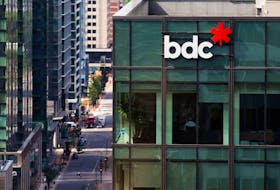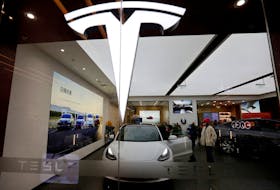I was reminded by a friend this week, in the bluntest possible terms, that not all business is myopically committed to growth.
In practice and purpose, I am committed to the pursuit of elusive growth. Much of my rhetoric in these columns reinforces this position.
Having been reminded not everyone wants the stress, complications or consequences of striving for growth, I have revisited this hypothesis.

Our Island economy is driven by small firms that have achieved levels of success that are deemed adequate. Rate of return is not measured by scale of growth, but operational excellence, personal satisfaction and fair return on time.
The Prince Edward Island business-scape is dotted with large enterprise success stories, but painted with small business. Across Canada there are 1.3 million businesses, 98 per cent of which have fewer than 100 employees. On P.E.I. there are roughly 10,000 businesses, a 2016 federal government study suggested there were 5,838 small businesses with SMEs accounting for over 92 per cent of the Island’s private workforce.
The “Mighty Government” remains a dominant and pervasive employer on P.E.I. Between 2003 and 2013, the public sector experienced a growth rate of 20.9 per cent while the private sector on P.E.I. only grew by 10.9 per cent. The 10 per cent difference in growth rates can also be compared to a 10.6 per cent difference in remuneration, with government pay exceeding that of the private sector.
Are the small local businesses that drive our economy and fuel our tax base irrational actors in a global economy? Paying suppliers, employees and creating value through energy expended. Small enterprise operators are nimble and adaptable responding to crises from cash-flow to rising input prices, irrational government actions and customer maintenance through expectational service (despite external global and political forces).
“Big is beautiful” is a mantra perhaps not for all. Success is essential, a more uniform call of business and success is a subjective definition.
From my perspective, which remains the position of this opinion-editorial, growth is a non-negotiable imperative of business. We will continue to examine increasing efficiencies, adopt technology to improve production and commit to increasing profit. These are consistent aims as I have been exposed to through academia, financiers/banks and measures for investors.
I can comfortably acknowledge there are other esoteric personal drivers of business owners, both large and small. We have a significantly large business in the eastern end of our Island that would likely fall into this category, and many smaller businesses I have been exposed to through my energy and related interactions.
As business owners, when you plot your plans, ensure your activities are congruent with your strategic objectives. From profit at all costs to corporate social responsibility, business objectives are as varied as their approaches to commerce engagement.
Blake Doyle is The Guardian's small business columnist. He can be reached at [email protected].









